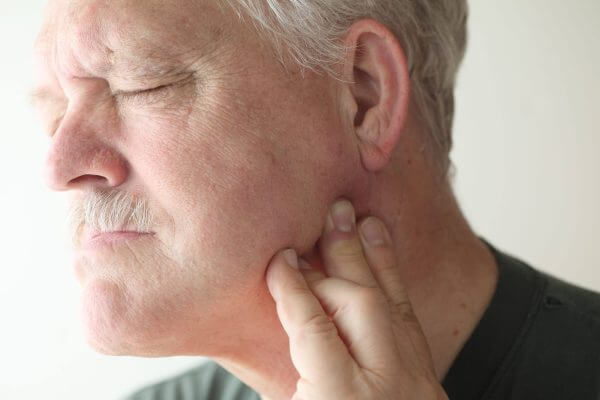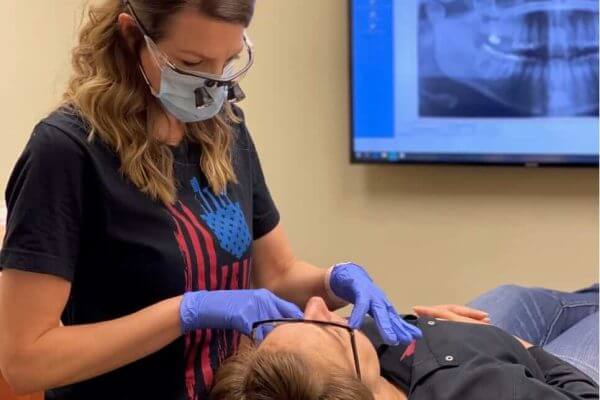Questions and Answers About Babies Teeth
Is It Normal for a Tooth to Fall Out at This Age?
If a child is about four years old and has lost their first primary tooth, you should take him or her into Lakefront Family Dentistry and let Dr. Hauser evaluate their oral health by taking digital x-rays to make sure the growth rate of the oral cavity and bones are coming in as they should. If there is any concern, Dr. Hauser will recommend the child be seen by their primary physician.

Milk Teeth are Gorgeous—What Happened to The Adult Teeth?
A child’s first set of teeth have a lot more enamel, which is why they are known as “milk teeth.” When those first teeth are lost, the adult teeth are thicker and more dense and reflect light differently, so they appear more yellow and aren’t as bright as the first set.
Genetics does play a part in a child’s tooth color, but so does fluoride in the water, toothpaste, medicine and diet all play a role, too. Many of these can be controlled so their oral health starts with a solid foundation for life.
Chipped Teeth in Children
If a child still has their baby teeth and it chips, it’s best to see Dr. Hauser, who can determine if there is decay or any underlying cause for the tooth being chipped. A parent also wants to make sure it doesn’t hurt the child if it’s chipped so far that it impacts the nerve of the tooth.
Sitting in the chair to fix a chipped tooth that has no decay or nerve pain could be difficult. If that’s the case, the dentist recommends just leaving it until the new, permanent teeth grow in.
Many Cavities in Baby Teeth
If a child has several or more cavities in their baby teeth, please take him or her to Lakefront Family Dentistry as soon as possible. There are children with numerous cavities on their first set of teeth, and this is not normal.
After seeing Dr. Hauser so he can determine the issue, both the doctor and parent will come up with a great oral hygiene routine so more cavities do not begin.
If these decaying teeth are going to be in the child’s mouth until they are seven, eight, nine or even ten, then they absolutely must be fixed so extractions are not required. Avoiding infection and an abscess is important for a child or adult in their oral cavity. The bottom line is—it cannot just be left alone until the permanent teeth come in.
Can We Pull Out Wiggling Teeth?
If a child has a baby tooth that’s wiggling, a parent will often make it a game and pull it out. However, if it causes the child any pain, an early eruption might be occurring and Dr. Hauser will want to take a look and make sure it’s actually time for that tooth to come out. Causing damage to the new, adult tooth could be irreparable, so seeing your local dentist is a great precautionary measure.
Adult Teeth Growing in Over Baby Teeth
Normally, six years old is when the adult teeth begin growing in, although it can happen earlier or later, too. When a child’s baby teeth have not fallen out and the new, adult teeth begin growing in, the dentist must take a digital x-ray to see the eruption patterns of the teeth. The act of eruption is what initiates the baby teeth falling out.
The baby tooth should not be sitting next to the adult tooth for months. If it’s a very short period of time and the baby tooth falls out, that’s normal. If the baby tooth is not falling out, a parent will want to bring their child in for an examination to make sure everything will grow in correctly.
My Child Pulled Their Own Tooth Out
When a child takes their own tooth out and there is some tissue connected to the tooth and there is not a lot of bleeding and pain, this is all right. If there is a lot of bleeding and pain, take the child to see Dr. Hauser at Lakefront Family Dentistry to make sure no damage has been done during the eruption process.
Tooth Overcrowding and Swelling—Do Not Ignore
If a child’s teeth are beginning to overcrowd and there is swelling in the mouth, jaw or chin, there could be an infection and the parent must bring the child in to see Dr. Hauser, DDS, immediately. Don’t delay, since an oral infection could be quite serious.
It could be the thickness of the tooth going through the gums into the mouth, however, it’s a serious issue that should not have a “wait and see” approach.
When do baby teeth come in—is a very frequent question parents ask. Dr. Hauser’s parents bring their children in twice a year for checkups to make sure the teeth are healthy and growing in the way they should, so the adult teeth will be healthy for years to come.
His own son is a patient and trusts his dad for the best care. Just call (951) 244-9495 or Request an Appointment Online Today so you and your child can meet Dr. Hauser.





